Examining Dietary Neurology in 'Grain Brain'
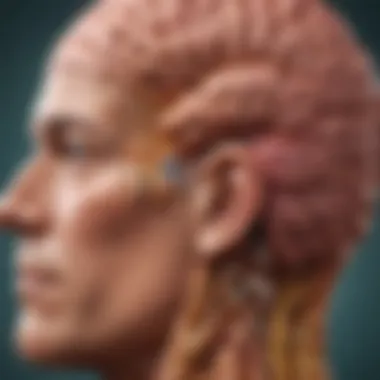
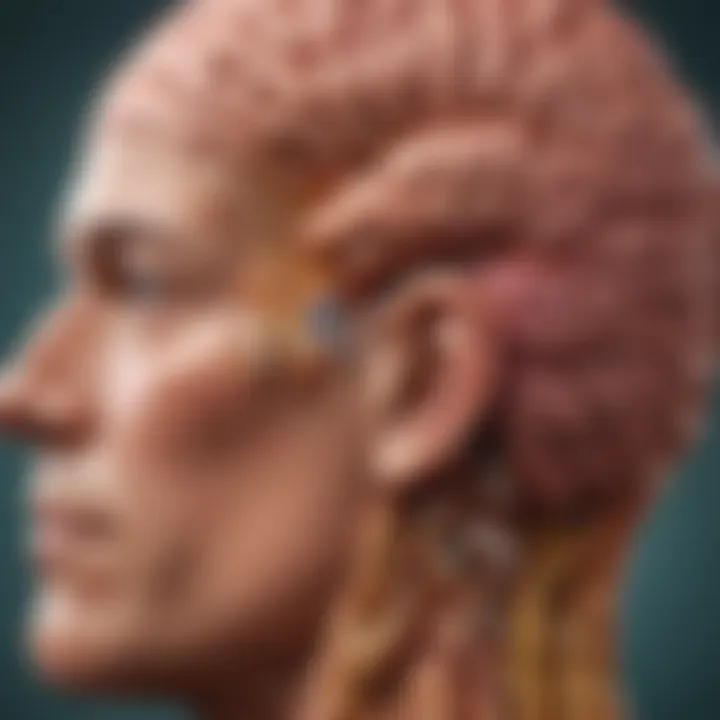
Intro
In a world that increasingly looks towards nutrition as a pathway to health and vitality, Dr. David Perlmutter's Grain Brain stands out like a beacon for many seeking to understand the intricate relationship between diet and neurological well-being. This work embodies a contentious viewpoint that centers on the idea that the foods we consume, especially carbohydrates, hold significant sway over not only our physical health but also our cognitive abilities.
By highlighting the potential dangers lurking in high-carb lifestyles, Dr. Perlmutter captures the attention of health enthusiasts, from casual readers to devoted followers of dietary science. However, diving deeper into this topic raises essential questions regarding the validity of the scientific claims made, as well as the practical implications of adopting such a diet.
Understanding the connection between our meals and our minds is more than just a matter of following fads; it's about discerning the truth behind nutrition. Does what we eat truly dictate how we think, learn, and feel? This article seeks to peel back the layers of Grain Brain, presenting a critical examination of its core assertions and the debate surrounding them.
As we navigate through Dr. Perlmutter’s arguments and the ensuing criticisms from the medical community, we will explore the broader implications for personal health, illuminating pathways that could potentially enhance cognitive function through thoughtful dietary choices. The forthcoming sections will provide a structured analysis of key points and ideas, and ultimately, a balanced perspective on the merits and drawbacks of Grain Brain.
Foreword to 'Grain Brain'
The exploration of Dr. David Perlmutter's book "Grain Brain" offers a fascinating look into the intricate relationship between diet and neurological health. This topic holds significant relevance in today’s health-conscious society, where the food we consume has been scrutinized not just for its nutritional value, but also for its impact on mental clarity and cognitive function. As science advocates delve deeper into nutritional neuroscience, books like "Grain Brain" challenge traditional views, urging readers to reconsider their dietary habits.
Perlmutter's primary assertion—that carbohydrates, particularly gluten, contribute to brain-related issues—has piqued the interest of both enthusiasts and skeptics alike. Understanding his arguments can shed light on how dietary choices may influence an individual’s mental faculties. Moreover, the discussion surrounding this book is layered, encompassing implications that reach beyond mere dietary suggestions; they stir conversations around chronic conditions, inflammation, and even brain aging.
In this examination, we touch on critical aspects of dietary neurology, weighing the merits of Perlmutter's claims while considering the scientific evidence that either supports or challenges his perspectives. The overall aim is to provide readers with a thorough understanding, equipping them with the tools necessary to make informed choices about their nutrition and health. Without further ado, let’s delve into the author's background, which frames the ideas presented in the book.
Author's Background
Dr. David Perlmutter is a respected neurologist with a robust background in nutritional science. He holds a degree from the University of Miami and has been involved in the field of clinical neurology for many years. His experiences have been rooted in a patient-centric approach, which has undoubtedly influenced his outlook on dietary health.
In his practice, Perlmutter observed a notable correlation between nutrition and neurological conditions. This led him to pursue an interest in how specific diets could alleviate or exacerbate brain disorders. He has authored several books that emphasize the critical role of food in maintaining cognitive health, illustrating his commitment to merging the fields of neurology and nutrition. His work consistently advocates understanding the biochemical interactions between diet and brain function, contributing significantly to the shift in how we perceive food’s role in health.
Overview of the Book's Thesis
At its core, "Grain Brain" posits that a high carbohydrate diet leads to an increased risk of various neurological conditions, including Alzheimer’s disease and other forms of cognitive decline. Perlmutter argues that gluten, found in wheat and other grains, can fuel inflammation, which is a common underlying factor in many brain disorders.
This thesis emerges from a synthesis of scientific research, case studies, and personal anecdotes, forming a comprehensive narrative that challenges readers to rethink their relationship with food. Furthermore, the book presents a compelling case for dietary changes that could enhance brain function, advocating for a diet rich in healthy fats and low in processed carbs.
In the sections that follow, we will dissect Perlmutter's scientific assertions, examining their validity and gathering insights from both supporters and critics. This discourse aims to provide a balanced assessment of his claims and their implications for public health.
The Neuroscience of Diet and Health
The relationship between diet and neurological health is a complex yet remarkable topic that has garnered significant attention in recent years. Dr. Perlmutter's assertions in Grain Brain ignite a broader conversation about how our dietary habits not only influence physical health but also shape our mental well-being. As we explore this connection, it’s pivotal to consider specific elements, benefits, and various considerations that govern the interplay between food and brain function.
Understanding Neurological Function
To grasp the essence of how diet affects our brains, we must first understand what constitutes neurological function. The brain, a highly intricate organ, operates through a network of neurons that communicate via electrical and biochemical signals. Every system within this biological masterpiece relies on the nutrients we consume.
For instance, omega-3 fatty acids are well-known for their role in supporting cognitive functions and are found abundantly in fish like salmon and walnuts. These nutrients contribute to the formation of neuronal membranes and help in cell signaling. Without adequate intake, neurons may struggle to fire efficiently, impacting cognitive abilities such as memory and learning.

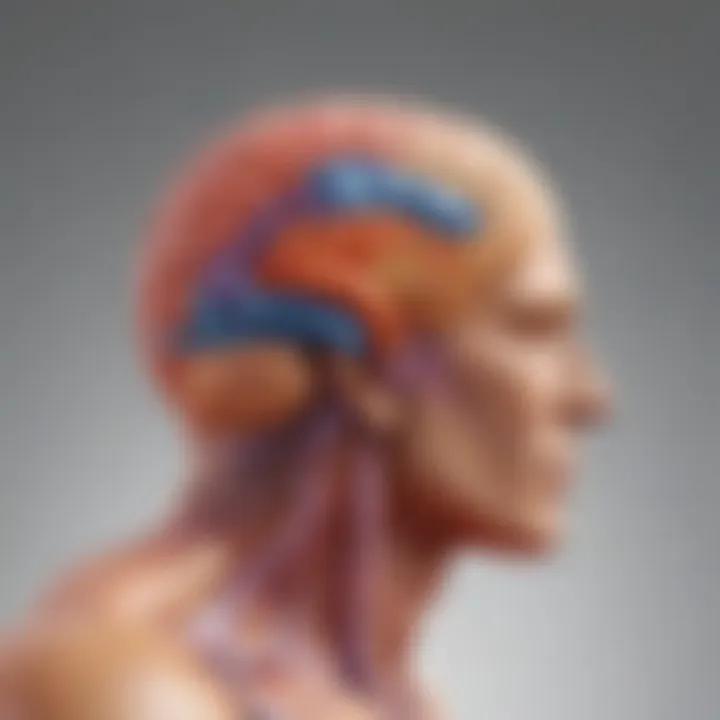
Additionally, vitamins such as B6, B12, and folate play crucial roles in neurotransmitter synthesis. A deficiency in any of these vitamins can lead to increased levels of homocysteine, which is associated with a higher risk of cognitive decline. Thus, understanding how various nutrients support neurological function highlights the vital importance of dietary choices in maintaining brain health.
The Impact of Carbohydrates on the Brain
Now, let's turn our attention to carbohydrates, which, according to Dr. Perlmutter, can have debilitating effects on cognitive function when consumed excessively. Traditionally seen as an energy source, carbohydrates can affect blood sugar levels, which in turn impact brain performance. When you eat a lot of carbs, especially refined ones, it can lead to spikes in blood sugar followed by crashes. This roller-coaster effect can leave individuals feeling mentally sluggish, like trying to drive a car on a bumpy road.
Potential Consequences of Overconsumption:
- Impaired Memory: High carb intake can impair memory processes, making it more difficult to learn and retain new information.
- Increased Inflammation: Diets high in sugar and processed carbs can elevate inflammation, which is linked to various neurodegenerative diseases.
- Mood Fluctuations: Carbohydrates can also modify serotonin levels. Imbalance can lead to mood swings and anxiety, which may also cloud cognitive function.
On the flip side, carbohydrates indeed play an essential role in providing energy. However, the key lies in the type of carbs consumed. Complex carbohydrates, which are digested more slowly, are generally associated with better cognitive functioning compared to their simpler counterparts. Foods such as whole grains, vegetables, and legumes provide sustained energy without the damaging spikes in blood sugar.
Understanding the impact of dietary choices on neurological health is vital. Dr. Perlmutter’s perspective on limiting carbohydrates, especially processed ones, reflects a growing awareness of how nutrition directly influences our cognitive abilities. The critical examination of these connections encourages readers to evaluate their own diets as a real factor in their overall mental wellness.
"Your brain is the organ that is affected most by your diet; you would do well to take that seriously." - Dr. Perlmutter
As we navigate the complex landscape of dietary neurology, it becomes evident that carefully selecting what we consume can lead to profound implications for cognitive health.
Examining the Claims
The section on Examining the Claims is pivotal to understanding Dr. Perlmutter's position as presented in Grain Brain. It provides a critical evaluation of the assertions made regarding the correlation between diet, particularly carbohydrate consumption, and neurological health. This part serves as a bridge, helping to clarify the scientific basis behind the claims while also addressing the controversies and debates that surround them.
Understanding these claims and their implications is essential because it equips the reader with the necessary tools to navigate through the often-conflicting information in dietary neuroscience. The claims of a direct connection between cognitive decline and dietary choices demand meticulous scrutiny to determine their validity and applicability in a broader context. Such exploration helps in understanding not just the claims but also the shapes they take as they filter through public discourse, scientific evaluation, and individual experience.
Cognitive Decline and Dietary Choices
Diving deeper into the relationship between cognitive decline and dietary choices reveals a landscape shaped by nuanced interactions. Dr. Perlmutter suggests that high-carbohydrate diets, particularly those rich in processed sugars, might adversely influence cognitive function. The underlying premise revolves around the notion that certain carbohydrates precipitate insulin spikes and, in turn, trigger inflammatory processes that could harm neural pathways.
In the real world, the discussion often diverges, reflecting various experiences and perspectives:
- Dietary Habits: For instance, these findings resonate in the case of older adults who might have adopted a lifestyle heavy in grains and sugars.
- Cultural Background: People from different backgrounds who consume a Mediterranean or low-carb diet oftentimes report better cognitive health, which seems to align with Dr. Perlmutter's observations.
While many may take comfort in these claims, it’s important to also note that dietary choices are also influenced by other factors such as genetic predispositions and overall lifestyle choices, making it a complex tapestry to unravel.
Gluten and Its Effects on Brain Health
Moving to gluten, Dr. Perlmutter places significant emphasis on its potential role as a neurotoxin. A cornerstone of his argument is that gluten sensitivity could extend beyond classic Celiac disease, potentially impacting neurological function even in those who don’t test positive for this condition. This assertion stems from the idea that gluten may trigger an immune response that could have systemic effects, ultimately leading to brain inflammation and cognitive challenges over time.
Observers argue that while some individuals experience undeniable improvement upon eliminating gluten, attributing cognitive enhancements solely to gluten abstinence may oversimplify the reality. The psychological benefits of removing gluten may also play a role. It might create a broader awareness about healthy eating habits among those significantly altering their diets, creating a ripple effect that extends beyond the absence of gluten itself.
Inflammation and Neurodegenerative Diseases
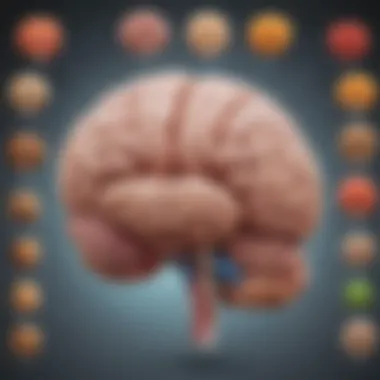
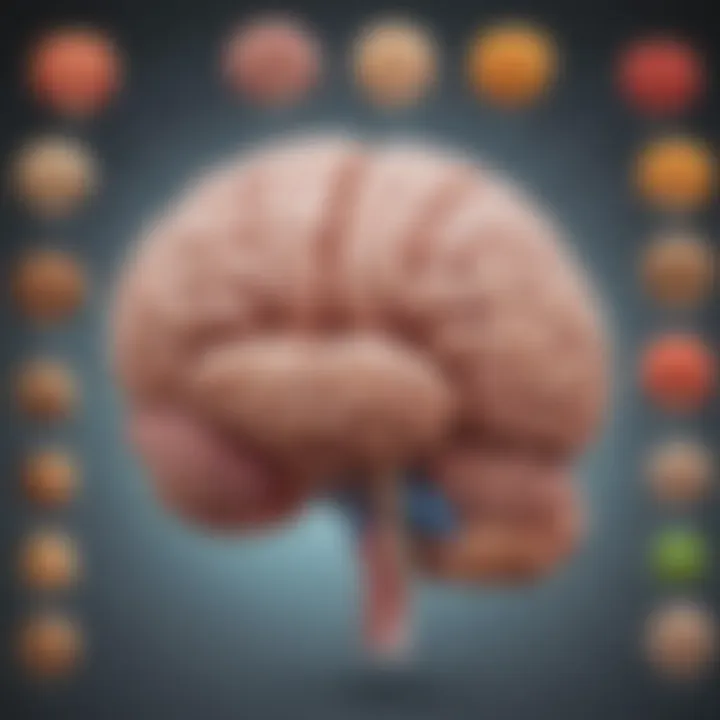
The relationship between inflammation and neurodegenerative diseases emerges as a notable focus in Grain Brain. Dr. Perlmutter argues that a diet high in carbohydrates can trigger inflammatory responses, thereby potentially laying the groundwork for conditions like Alzheimer's and Parkinson's disease.
One can observe notable patterns in existing research, suggesting that:
- Chronic Inflammation: Could be linked to various forms of cognitive decline and neurodegeneration, including Alzheimer's disease.
- Dietary Interventions: Certain dietary interventions designed to lower systemic inflammation may prove useful, though their long-term efficacy remains a hot topic of debate.
In sum, the claims made in Grain Brain challenge conventional dietary wisdom and prompt a reevaluation of how we perceive our food's impact on brain health. Each assertion, while compelling, requires careful examination, not just in a laboratory setting, but also in the day-to-day decisions that underline our dietary landscapes.
Contrasting Perspectives
In the realm of dietary neurology, exploring contrasting perspectives is vital. This section unfolds a tapestry of ideas and theories that provide a balanced view of Dr. Perlmutter's assertions in 'Grain Brain.' As the conversation surrounding diet and brain health continues to evolve, understanding various opinions enhances one's ability to make informed choices regarding nutritional practices and cognitive health. Different schools of thought not only enrich the dialogue but also sharpen the critical analysis required in a field often swayed by trends and popular opinion.
Critiques from the Scientific Community
The scientific community has not been shy about voicing skepticism towards Dr. Perlmutter's claims. Critics highlight that while the book presents compelling arguments for the dangers of carbohydrates and gluten, the underlying evidence is not universally accepted or robust.
For instance, a number of studies suggest that carbohydrates are not in and of themselves detrimental to brain health. Many are essential for energy and cognitive function. Furthermore, nutrition often becomes a tug-of-war, with one side advocating for low-carb diets while others champion the importance of whole grains.
Moreover, some researchers point to the need for larger-scale, long-term studies to solidify any correlations made between dietary choices and neurological outcomes. Just as a tree doesn’t sway in the wind without roots, these claims require strong foundational evidence to truly take hold in the scientific discourse.
Despite the critiques, it’s worth noting that the dialogue ignited by 'Grain Brain' does promote important discussions about diet and health. This back-and-forth debate can foster further research, encouraging scientists to delve deeper into how our diets affect cognitive function.
Alternative Dietary Theories
Parallel to Dr. Perlmutter’s views are several alternative dietary theories that suggest different pathways to cognitive health. One notable perspective is the Mediterranean diet, which emphasizes a balanced intake of whole grains, healthy fats such as olive oil, nuts, and abundant fruits and vegetables. Studies show that this approach not only supports physical well-being but is also hailed for its cognitive protective effects.
Another significant theory is the focus on mindfulness and holistic nutrition. This philosophy advocates for understanding one's body and its unique reactions to food. The approach suggests eliminating not just gluten but foods that an individual might be intolerant to, creating a personalized dietary path that prioritizes mental clarity and overall vitality.
Furthermore, the principles of plant-based diets are gaining momentum. Advocates argue that diets rich in antioxidants, such as berries, green leafy vegetables, and legumes, can foster brain health by mitigating oxidative stress — a factor linked to neurodegenerative diseases.
In sum, contrasting perspectives enrich the conversation surrounding 'Grain Brain.' By exploring critiques and alternative dietary theories, individuals are encouraged to critically assess not only their nutrition but also the broader implications of dietary choices on neural function. It’s not just about what’s on one’s plate, but how one engages with the ongoing dialogue about brain health ultimately resonates in making balanced lifestyle choices.
Practical Applications of Dr. Perlmutter's Advice
Dr. Perlmutter's insights serve as both a lighthouse and a double-edged sword in the realm of nutrition and cognitive health. It's all well and good to read an intriguing thesis in a book like 'Grain Brain', but what does it translate to in everyday life? The practical applications of his advice are vital not just for understanding but also for implementing dietary changes that purportedly bolster brain health.
Many readers come seeking a clear path to improved cognitive function, a reassurance that what they eat can make a tangible difference. But navigating this field requires discernment and a fair share of personal experimentation. Here’s where the real magic lies: understanding the delicate balance between adapting advice from a book and listening to one’s own body.
Adapting Personal Diet for Cognitive Health
the crux of Dr. Perlmutter’s thesis revolves around the intricate web connecting diet and neurological health. Many who delve into this advice feel empowered to make conscientious choices regarding their meals. They unlock new ways to think about food, not just as fuel, but as a critical player in brain function.


- Incorporating Healthy Fats: One key actionable step often discussed is the shift from carbohydrate-heavy meals to those rich in healthy fats. This may involve integrating avocados, olive oil, and nuts into daily meals. These foods are believed to provide sustained energy for the brain.
- Mindful Consumption of Carbohydrates: It’s not about avoiding carbs altogether, but choosing high-quality sources that can be part of a balanced diet. Whole grains, for instance, might come into consideration instead of refined options. By reducing simple sugars, a person might delay cognitive decline and even boost energy levels.
- Hydration: Interestingly, hydration is sometimes overlooked. Simple water intake contributes significantly to brain function. Keeping hydrated can enhance cognitive clarity and concentration.
Here’s a thought-provoking takeaway: While individual needs can vary, the essence of adapting your personal diet often lies in small, yet impactful dietary shifts. As one might say, you don’t need to overhaul the entire ship; just adjust the sails to catch better winds.
Lifestyle Strategies Beyond Nutrition
When talking about brain health, one could be forgiven for solely focusing on what’s on the plate, but Dr. Perlmutter urges us to think beyond the dinner table. Cognitive well-being is multifaceted, demanding attention not just to diet but also to lifestyle choices. Here’s a look into some practical, lifestyle strategies that can prove valuable:
- Physical Activity: Regular exercise has profound implications for mental health. People engaging in aerobic exercises like jogging or even brisk walking could experience increased blood flow to the brain, fostering better cognitive function. As the saying goes, "a sound mind in a sound body" really does hold water.
- Sleep Hygiene: Prioritizing quality sleep stands out as another pillar of cognitive health. Committing to a regular sleep schedule can help improve memory and learning capabilities. Device-free wind-down routines can assist in establishing a calming pre-sleep ritual.
- Stress Management Techniques: Managing stress might also contribute positively. Mindfulness practices, such as meditation or yoga, have shown promise in reducing anxiety and promoting mental clarity. Finding that inner calm can do wonders for overall brain health.
- Social Connections: Maintaining rich social connections adds another layer to cognitive wellness. Engaging in community activities or simply nurturing friendships stimulates cognitive engagement and emotional well-being. Keeping those bonds strong can keep you sharp!
Response from the Public
The section concerning public response to Dr. Perlmutter's work is vital for grasping the real-world implications of his dietary advocacy. The positions taken by individuals ranging from practitioners of nutrition to everyday folk who have adopted his recommendations provide valuable insights into the perceived effectiveness of his theories. This exploration serves a dual purpose: it sheds light on the practical outcomes of applying Dr. Perlmutter's dietary strategies, while also giving voice to the skepticism that often surrounds bold claims in the realm of health and wellness.
The importance of examining public response lies in the fact that anecdotal experiences can often illustrate the nuances that scientific studies may overlook. Success stories highlight how specific methods from 'Grain Brain' can lead to improved cognitive health, while critiques and backlash reveal the other side of the coin, offering a more balanced view of the debate surrounding dietary neurology.
Success Stories and Anecdotes
The success stories from individuals who adopted Dr. Perlmutter's recommendations can be compelling indicators of the potential for dietary changes to improve cognitive function. One notable example involves a middle-aged woman named Lisa, who had been struggling with memory lapses and lack of focus for years. After embracing a low-carb, high-fat diet as advised in 'Grain Brain', she reported significant improvements within weeks. Speaking in a public forum, she noted, "I feel like I’ve discovered a switch that had been turned off for ages. My energy levels are up, and I can finally concentrate on my reading without losing my place repeatedly."
Such anecdotes, while undoubtedly subjective, build a narrative that resonates with many people looking for practical solutions in their lives. Often, these stories are shared on health forums, social media platforms like Facebook, or even Reddit, creating a community of individuals who validate each other's experiences. This informal network can create a buzz around the ideas presented in the book and bring others into the fold who are searching for similar transformations.
Criticism and Backlash
On the flip side, not all responses to Dr. Perlmutter’s conclusions are positive. There exists a considerable faction that challenges the diet's efficacy for brain health, sometimes vehemently. Critics often argue that the science behind 'Grain Brain' oversimplifies complex neurological issues. For instance, a group of nutritionists recently addressed this in a panel discussion, with one member stating, "It is dangerous to place so much emphasis on carbohydrates as the villain while ignoring the panoply of factors that contribute to neurological health."
This backlash contributes to an ongoing debate about the best practices for diet and cognitive function. Facebook groups and Reddit threads are rife with discussions where people caution against following such drastic dietary shifts without consulting a healthcare professional. This critical perspective serves as a necessary reminder that, while personal stories can inspire, they are not a substitute for scientific rigor.
In summary, public opinion surrounding 'Grain Brain' showcases a spectrum of perspectives, each contributing to the larger conversation about dietary approaches to health. From success stories that inspire individuals to changes in their lifestyles to critiques that urge caution and further investigation, each voice plays a critical role in weighing the validity of Dr. Perlmutter's claims.
Ending: Weighing the Evidence
In any discussion about dietary impacts on neurological health, particularly in reference to Dr. Perlmutter’s work, it becomes essential to evaluate the breadth of evidence available. This section aims to synthesize insights gained from the exploration of Grain Brain while also addressing potential gaps and future opportunities in research. The conclusions drawn are not merely academic; rather, they carry implications that extend into real-world dietary choices and health outcomes.
Summary of Key Insights
The journey through Grain Brain reveals several focal points worth summarizing:
- Carbohydrate Intake: A central tenet of Dr. Perlmutter’s thesis is the assertion that high carbohydrate consumption, particularly sugars and refined grains, can lead to adverse effects on brain function and health. The implication is that by reducing these foods, individuals may experience cognitive improvements.
- Inflammation: Dr. Perlmutter ties chronic inflammation to various neurological conditions, asserting that dietary choices can mediate this inflammation. Foods rich in antioxidants and omega-3 fatty acids are highlighted as beneficial for countering these effects.
- Individual Variability: One insight that emerges is the variability within individuals. What works for one person may not hold true for another, raising the importance of personalized nutrition rather than a one-size-fits-all approach.
- Scientific Backlash: The criticisms raised by various experts serve as a counterbalance to Dr. Perlmutter's claims. They urge for more rigorous scientific testing before fully endorsing such sweeping dietary changes.
Overall, the insights indicate a landscape where personal dietary modifications might provide cognitive benefits, yet the recommendations should be approached with caution due to contrasting expert opinions and the need for further research.
Future Research Directions
Moving forward, it’s clear that additional research is crucial to bolster the claims made in Grain Brain. Here are a few proposed avenues worth exploring:
- Longitudinal Studies: Conducting long-term studies can provide clearer insights into how dietary habits affect neurological health over time. It will help establish causation rather than mere correlation.
- Microbiome Research: With growing evidence implicating the gut-brain connection, understanding how diet alters the microbiome could provide further understanding of its effects on cognitive health.
- Diversity in Diet: Investigating the impacts of varied dietary patterns across different populations may yield interesting insights—not all cultures rely on the same dietary practices, and their differing health outcomes can shed light on effective dietary strategies.
- Impact on Specific Neurological Conditions: Focused studies on how specific diets affect particular conditions like Alzheimer’s or ADHD could lead to refined dietary guidelines tailored for such illnesses.
As we piece together these elements, the exploration into dietary neurology, particularly as discussed in Grain Brain, stands as a vital narrative. While Dr. Perlmutter’s perspectives open pathways for individual inquiry into nutrition's role in cognitive health, ongoing investigation will be crucial to navigate the intricate relationship between diet and neurological functioning.



